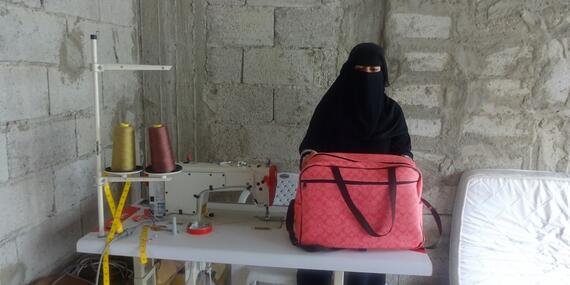Yemen Women’s Union: Funding local livelihoods

Nadia, a 28-year-old widow, was forced to make the heart-wrenching decision to send two of her children to work instead of to school. Without a stable income, she had few other options to care for her three children.
Fortunately, Nadia later learned about an economic programme offered by the Yemen Women’s Union (YWU). She signed up and received training in jewellery (necklace, bracelets, rings, earrings and medals) manufacturing, followed by training in marketing and financial literacy. Nadia then received the tools to start her own accessory-making business.
“With the establishment of my business, I found a lifeline – a stable source of income that allowed my children to stop working and embrace education once again,” she told the Yemen Humanitarian Fund (YHF).
Supported by the YHF, the YWU addresses vulnerabilities by supporting the economic empowerment of IDPs and host communities across Ad-Dhale, Ibb and Taiz Governorates. YWU targets the most vulnerable women who face challenging circumstances due to conflict, and it provides them with life skills and income-generating training tailored to meet their needs and interests.
Between March and August 2023, YWU trained 120 women – 40 from each governorate – in how to make products including incense and perfume, pastry, leather bags and jewellery. Participants include women heads of households without a source of income, divorced or widowed women, women caring for sick relatives or children, and survivors of gender-based violence.
The OCHA-managed YHF has significantly contributed to alleviating Yemen’s humanitarian crisis. In 2023, it allocated US$82.4 million in direct support for high-impact projects across Yemen. These allocations were channeled through nine UN agencies, 16 international organizations and 27 national organizations. Of the $82.4 million, 47 per cent went to national non-governmental organizations (NGOs), 23 per cent to international NGOs and 27 per cent to UN agencies.
The YHF’s approach ensures that funding is directly available to humanitarian partners, enabling them to deliver timely and effective life-saving assistance to the people who need it most.
